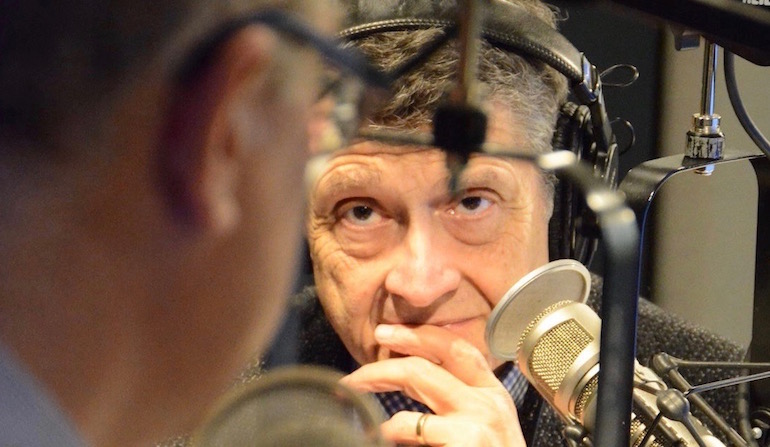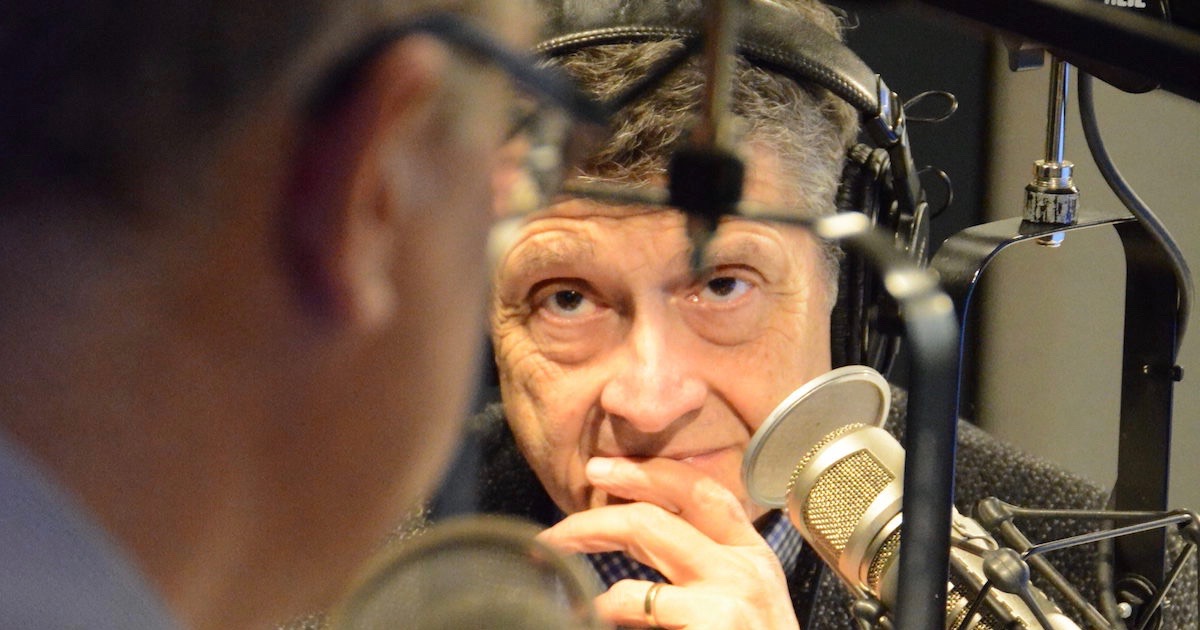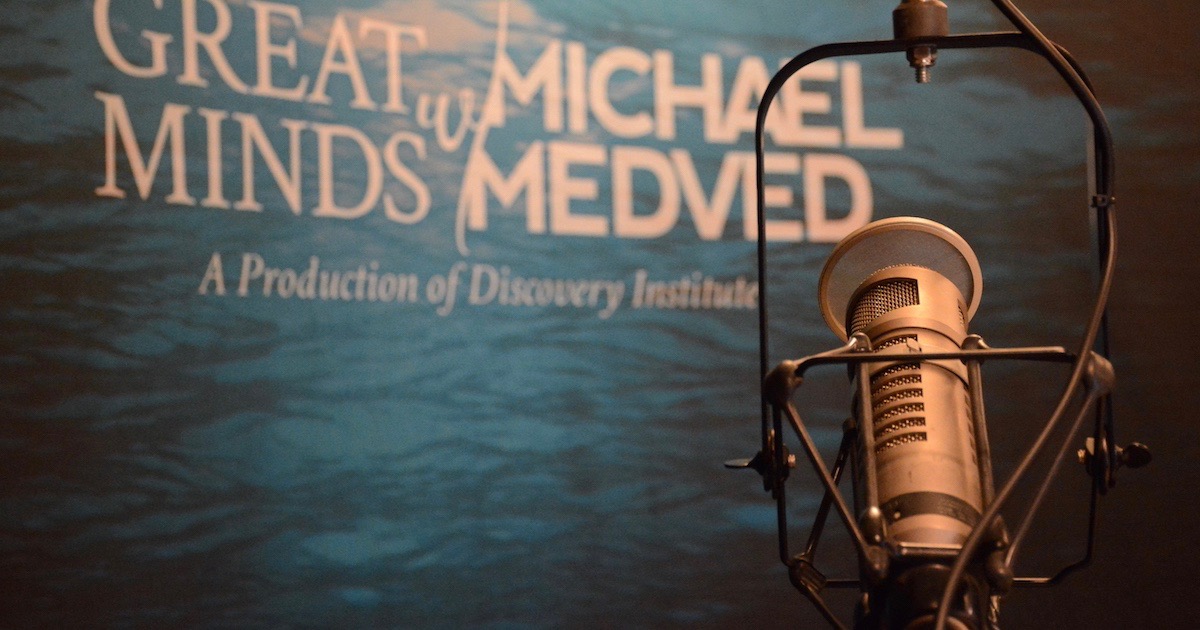 News Media
News Media
Great Minds Podcast Launches Thursday — Q&A with Michael Medved Today


Tomorrow we’re thrilled to see the launch of the new podcast Great Minds with Michael Medved, available in audio and video at the Minds with Medved website. You can subscribe there or directly through iTunes. It’s free! Mr. Medved, a nationally syndicated radio host with 4+ million listeners, not to mention a bestselling author and Discovery Institute Senior Fellow, kindly took time to answer some questions from Evolution News staff.
Evolution News: What’s the format of Great Minds with Michael Medved?
Michael Medved: In every session, we concentrate on a contemporary thinker who’s been willing to challenge the lazy consensus of conventional wisdom and to introduce new perspectives or, on occasion, to renew timeless truths. Without commercial interruption, we focus on aspects of the guest’s work.
EN: What can you do on Great Minds that you can’t do on the Michael Medved Show?
MM: When they listen to my radio talk show, people are looking for my perspective on the issues of the day; breaking news, inevitably, dominates the conversation. On Great Minds we’re more concerned with deeper and more consequential subjects. We can not only cover topics in greater depth, but also pursue material of more wide-ranging breadth — touching on crucial questions of culture, philosophy, art, media, science, economics, history and theology.
EN: What do we miss, as members of the public, by focusing on daily headlines rather than pulling back for the big picture sometimes?
MM: We miss, above all, a sense of perspective. Take the current obsession with Presidential tweets. There’s a tendency on the Left to see each tweet as a new reckless assault on public order and decency, and on the Right to view each 280-character utterance as a master-stroke of political strategizing. Meanwhile, it’s hard to remember what President Trump tweeted last month, let alone last year, that created such hysterical and furious controversy for a day or two. By focusing on public gestures, or random comments, that don’t matter, we miss the substantive changes and battles over policy and values that can matter a great deal.

EN: For your purposes in inviting guests on the program, what is a “great mind”?
MM: We live in an era of obsessive specialization. To me, a great mind is one that transcends the boundaries needlessly imposed by that tendency. The thinkers in our line-up have a great deal to say on different issues that raise explosive subjects in a range of disciplines. I’m particularly interested in trying to connect those disciplines with reference to the first principles that inspire our guests.
EN: Great Minds will be accessible as audio and video, so we can see you, your guest, and the studio. The backdrop is a scene of scuba divers in the water. What’s that about? Will be there be a nautical theme?
MM: No, but I hope that the background will encourage listeners and viewers to join us in jumping into the deep end of the pool — the pool of ideas — with no fear of drowning in detail. The scuba metaphor indicates we’ll guarantee your air supply — not allowing the exchanges to grow stale or claustrophobic.
EN: We’ve heard you’ll not only be interviewing guests, but sitting down to be interviewed yourself. True?
MM: Sure, turnabout is fair play. Steve Meyer, director of the Center for Science & Culture, will grill me on some of my ideas on media messages and their impact, faith and politics, and, most importantly, the role of Divine Providence in the rise of our Republic. The conversation is based on the most controversial, and significant, of my thirteen books.
EN: Would you give us an idea of what we can expect in the way of guests and topics?
MM: Well, first up will be Randall Wallace, Oscar-winning screenwriter and director (Braveheart, We Were Soldiers). We’ll talk about keeping one’s faith in Hollywood, working with Mel Gibson, and the ongoing efforts to provide more uplifting fare from the entertainment industry.
EN: At Discovery Institute, we’re gratified and excited by the prospect of working with you and your studio team of Jeremy Steiner and Greg Tomlin. If you don’t mind our asking, you three are already putting together an outstanding daily radio show. So what does Discovery add?
MM: It adds the chance to range far beyond up-to-the-minute focus of live daily radio — to venture deep into the past and, even more intriguingly, far into the future.
EN: Correct us if we’re wrong, but high-quality programs like this are not only easy but close to free to produce, aren’t they?
MM: Alas, anything of value also has a cost. Anyone who’s ever tried to edit video imagery on the Internet, or ventured at all into the world of broadcasting or film-making, understands the complications of putting together recorded conversations in a substantive, coherent, and engaging manner. There’s also a matter of transportation. We’d like to think that Seattle is the Hub of the Universe (as Boston claimed to be before the Civil War) but it’s also necessary to range far afield, geographically, for some of the best guests, or else to arrange to smuggle them into the Northwest. Who knows? As time goes on with Great Minds, maybe we’ll be able to establish such a reputation for the Emerald City as a jewel of intellectual discourse that the travel won’t be nearly as necessary.
Meanwhile, this program, without commercial interruption or corporate underwriting, will launch and, we hope, continue through the donations of those who appreciate it. If you count yourself in that number, I hope you’ll become our partner on this project by donating here.
